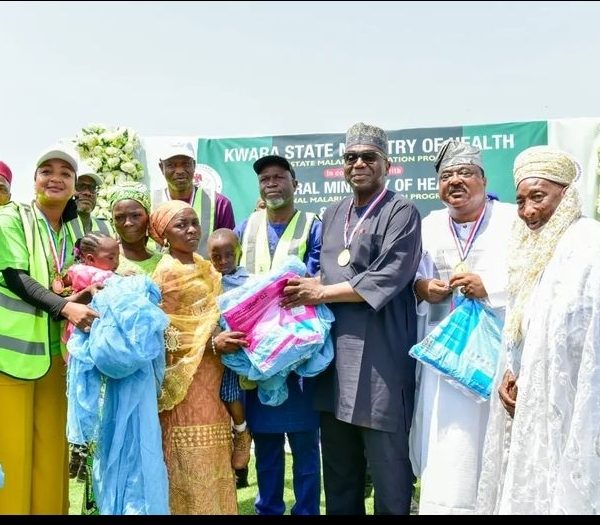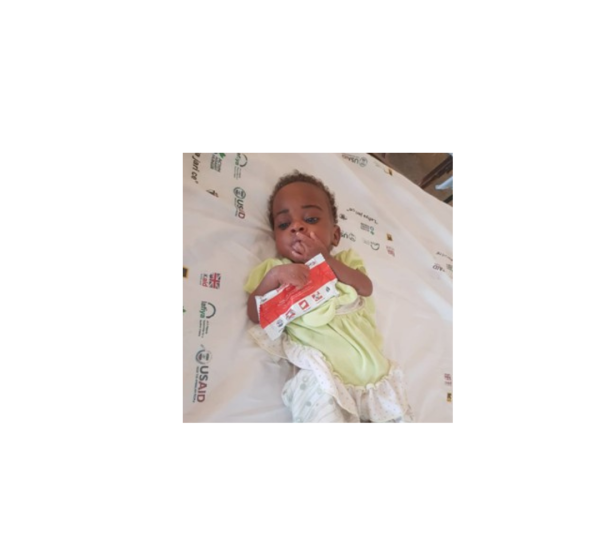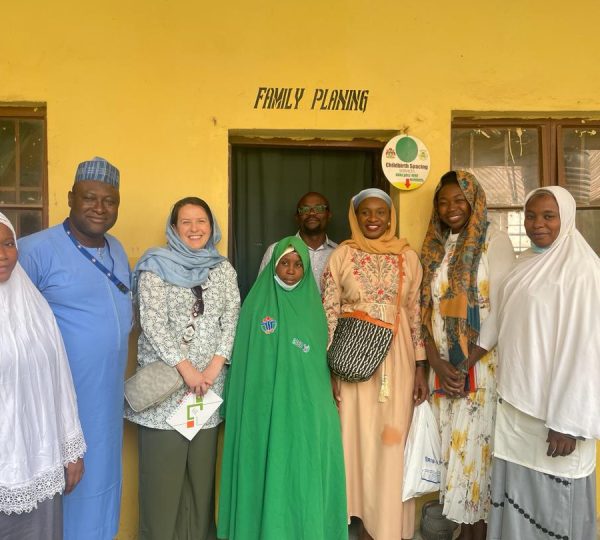Addressing Water Crisis in Nigeria: SFH Initiatives for Ensuring Clean and Safe Water
Authors: Isibhakhomen Y. Ikhimiukor, Jane C. Adizue, Nnamdi Anosike
In 2021, the UN Environment Programme reported that globally, over 3 billion people are at risk of disease due to the uncertain quality of their rivers, lakes, and groundwater. Some researchers surveyed more than 75,000 bodies of water in 89 countries and found that over 40% were severely polluted. The United Nations Sustainable Development Goal (SDG) 6 specifically targets ensuring universal access to sustainable water and sanitation management, however, as of 2022, reports indicate that 2.2 billion people still lack access to safely managed drinking water, as highlighted in the SDG Report of 2023.
Nigeria faces significant challenges in this regard. UNICEF Nigeria reported that an estimated 70% of water at the point of consumption is contaminated, contributing to Nigeria having the highest number of deaths from waterborne diseases among children under five years old. While access to potable water remains limited in many communities, questions arise regarding the availability of adequate water, sanitation, and hygiene facilities, as well as access to products that can assist in maintaining clean and safe water. Through the efforts of organisations such as Society for Family Health (SFH) and other agencies, there is optimism for ensuring that communities gain access to clean and safe water, which is vital for health and hygiene, thereby ensuring healthier lives for all.
World Water Day 2024
On World Water Day 2024, SFH conducted a community sensitisation in Nasarawa Local Government Area of Nasarawa state, under the theme “Water for Peace.” The WASH for Healthy Lives (W4HL) project team aimed to educate community residents on the importance and necessity of clean and safe water.
Mr Atala S. Simon, Director of Health for Nasarawa Local Government Area (NLGA), welcomed the team, acknowledging the significance of the flag off of the intervention in the community, described the day as exciting, unforgettable, and historical as such intervention has not been implemented in the community before now. He appreciated SFH for identifying and targeting Nasarawa Local Government Area for such a laudable intervention.
SFH’s WASH for Healthy Lives (W4HL) Project lead, Pharm Jane Adizue expressed gratitude to NLGA for hosting the initiative and welcoming Society for Family Health. She emphasised the importance of water for life and health, noting that every March 22nd is set aside to celebrate World Water Day. Stating that Water Connects People, she highlighted the need for collective responsibility in ensuring access to clean water and encouraged actions to maintain water cleanliness and environmental hygiene. She further mentioned that SFH would be implementing a Water, Sanitation & Hygiene (WASH) intervention in Nasarawa Local Government Area, focusing on educating community members on water preservation techniques to ensure it is clean and safe for consumption. Pharm Jane also highlighted the important roles of women and youth in water management and made recommendations for inclusive decision-making and education on water hygiene practices.

Mr Nnamdi Anosike, Project Coordinator for SFH WASH Intervention, provided an overview of World Water Day, emphasising its theme, “Water for Peace,” and its significance in promoting equitable access to water resources for peacebuilding and sustainable development. He noted that “World Water Day is a critical moment for reflection, action, and solidarity in addressing the global water crisis. By recognising the significance of water as a fundamental human right and a prerequisite for sustainable development, adding that “World Water Day inspires collective action towards achieving a water-secure and resilient future for all.”

Mr. Charles Olusoji, representing the Federal Ministry of Water Resources and Sanitation, emphasised the significance of water conservation and management strategies. It was revealed during the baseline assessment that was conducted in NLGA; the primary source of water in NLGA is majorly surface ground water i.e. Stream, prompting government interventions to establish facilities such as boreholes within the community. He reiterated the government’s commitment to addressing the global water crisis by striving to ensure that 60 million individuals gain access to clean and safe water to achieve SDG 6 by 2030. He highlighted the aim of the World Water Day commemoration, which is to raise awareness of the vital role water resource development plays in enhancing economic productivity and social well-being.
During his address, Dr Rowland Ayuba, Director of the Nasarawa State Rural Water and Sanitation Agency (NARUWASA), underscored the critical importance of clean water for maintaining hygiene. He emphasised that water is essential for survival but cautioned against the risks of water contamination stemming from practices such as open defecation and drinking directly from polluted sources, which can result in disease outbreaks and fatalities within a community. Dr Ayuba referenced the cholera outbreak in Nasarawa State in 2021, which claimed the lives of 21 individuals out of 150 affected by the disease, highlighting the grave consequences of waterborne illnesses. He further emphasised that poor water quality not only impacts health but also hinders educational opportunities and impedes economic growth due to associated health burdens. Dr Ayuba advised residents to prioritise the consumption of potable water, as well as to treat and store their water appropriately to safeguard against contamination.
SFH Strategy to Ensure Healthy Lives for All
Society for Family Health WASH for Healthy Lives (W4HL) Project is an intervention designed and implemented by Society for Family Health (SFH) and funded by Procter &Gamble (USA) to address challenges associated with access to clean and safe drinking water and other water-related issues which includes Sanitation, & Hygiene. The project currently operates in two states, Nasarawa and Edo, which are consistently grappled with recurring WASH challenges on an annual basis.

To address this pressing issue, SFH will distribute 2.3 million sachets of P&G water purifier across Nasarawa, and Edo states this year. Key messaging and usage of the product will be disseminated within target communities via Interpersonal Communication Agents (IPCA), who will engage in door-to-door awareness campaigns and community outreach sessions. For school interventions, Peer Educators (PEs) will educate their peers on the benefits and proper usage of P&G water purifiers during WASH club meetings, general assemblies, and one-on-one interactions. These agents have received specialised training in the application of P&G water purifiers and will conduct demonstrations within the community to ensure residents understand how to effectively use the product to enhance water quality in the selected communities.
The product will be stocked in various Patent and Proprietary Medicine Vendor (PPMV) stores, Community Pharmacy (CP) and General Stores for easy access and sustainability of the improved water treatment behaviour. Furthermore, Society for Family Health offers alternative water purification products such as its water guard purifiers and water-guard tank floaters to provide additional options for achieving clean and safe water within communities.

Implementing these measures will grant Nigerians access to clean and safe water, thereby ensuring a healthier life for all and contributing to the achievement of the SDG 6 targets by 2030. Consequently, we urge government and partners to endorse and support these initiatives aimed at improving the well-being of communities in Nigeria.




